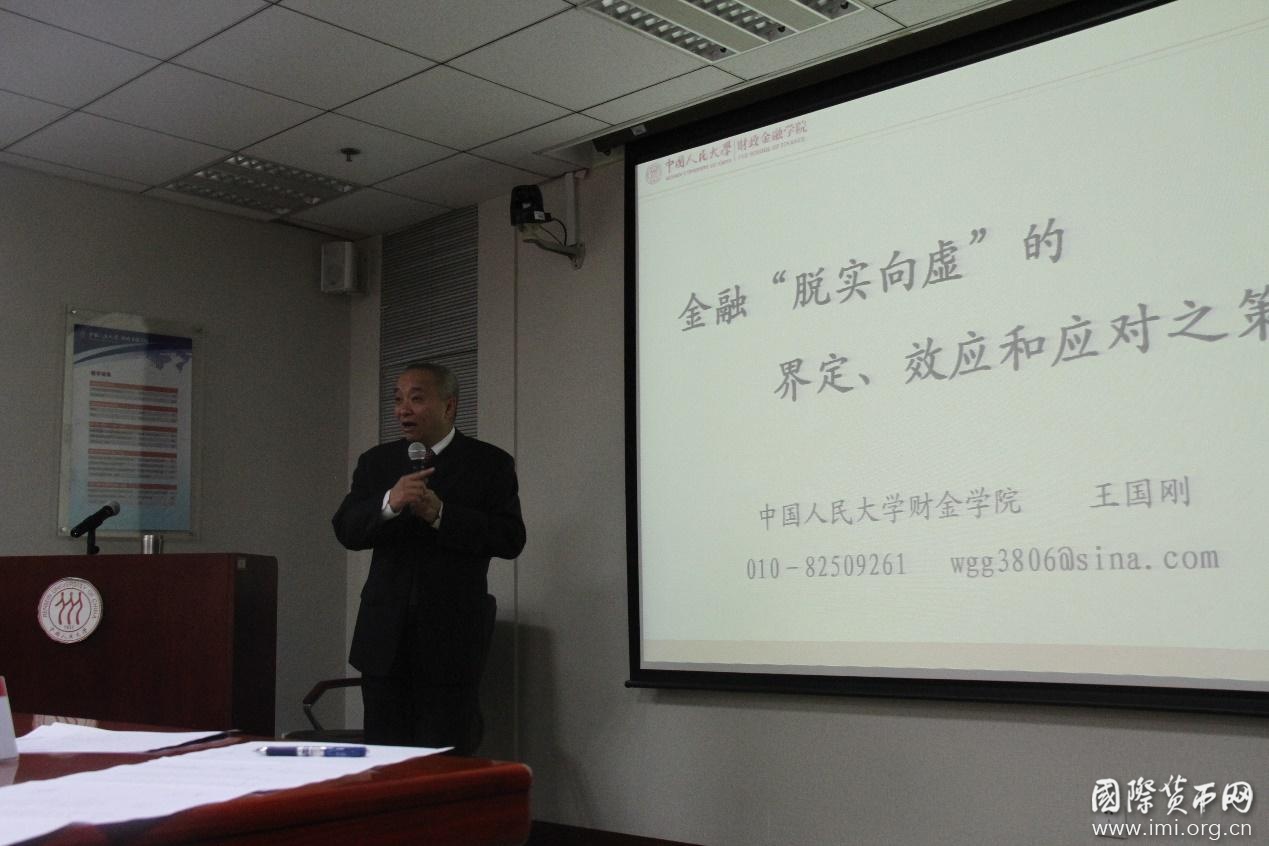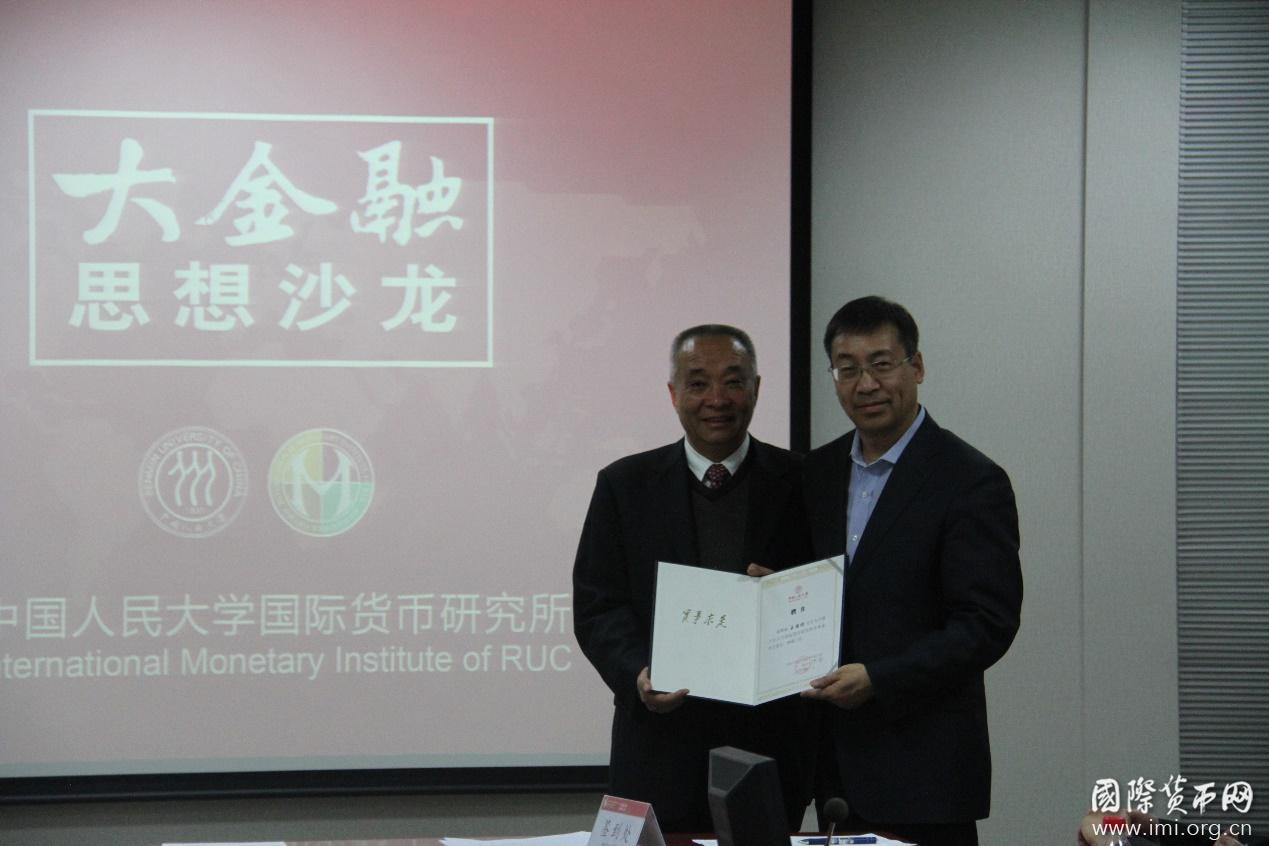Macro-Finance Salon (No. 86) Series of the 19th CPC National Congress (No. 8): The Definition, Effects and Solutions of Shifting from Real Economy to Virtual Industries
2017-12-23 IMI Professor Wang Guogang first gave a definition of "shifting from real economy to virtual industries", briefing economy, vehicle carriers, trade partners, financial types from four aspects—definition, form, causes and effects. Then he points out that we often say that “shifting from real economy to virtual industries" from the aspect of funds, namely much money are operated in financial sector, but failed to be used in the entity enterprises, which leads to asset shortage in financial sector and money shortage in real economy. Then, Based on the continuous decline of the PPI growth rate, Professor Wang analyzed status quo of the real economy and explained the causes and effects of "shifting from real economy to virtual industries" from enterprise and commercial Banks. Finally, he put forward some suggestions, including guiding investment, improving corporate profits and financial supervision.
In the discussion session, Professor Zhao Yanyun put forward his own views on the industry segmentation, the internal structure and dynamic changes of statistical data. Professor Zhang Jie believes that Professor Wang’s speech is full of passion and logic, widening everyone’s horizon. Especially in the first part of his speech, the analysis of the "real and virtual economy" from various dimensions involves many basic problems in the financial field, which is very instructive. Professor Zhang also reflected on the widely accepted monetary system theory and expressed his opinions on the reasons for the expansion of entities slower than the financial expansion and the dependence of finance and taxation on the financial sector. Finally, Professor Wang shared his views with the students and guests on the issues of financialization of the economy, rate of return on financial assets and the central bank's control over the benchmark deposit and lending rates.
Professor Wang Guogang first gave a definition of "shifting from real economy to virtual industries", briefing economy, vehicle carriers, trade partners, financial types from four aspects—definition, form, causes and effects. Then he points out that we often say that “shifting from real economy to virtual industries" from the aspect of funds, namely much money are operated in financial sector, but failed to be used in the entity enterprises, which leads to asset shortage in financial sector and money shortage in real economy. Then, Based on the continuous decline of the PPI growth rate, Professor Wang analyzed status quo of the real economy and explained the causes and effects of "shifting from real economy to virtual industries" from enterprise and commercial Banks. Finally, he put forward some suggestions, including guiding investment, improving corporate profits and financial supervision.
In the discussion session, Professor Zhao Yanyun put forward his own views on the industry segmentation, the internal structure and dynamic changes of statistical data. Professor Zhang Jie believes that Professor Wang’s speech is full of passion and logic, widening everyone’s horizon. Especially in the first part of his speech, the analysis of the "real and virtual economy" from various dimensions involves many basic problems in the financial field, which is very instructive. Professor Zhang also reflected on the widely accepted monetary system theory and expressed his opinions on the reasons for the expansion of entities slower than the financial expansion and the dependence of finance and taxation on the financial sector. Finally, Professor Wang shared his views with the students and guests on the issues of financialization of the economy, rate of return on financial assets and the central bank's control over the benchmark deposit and lending rates.
 At the end of the salon, Professor Zhang Jie presented a letter of appointment to Professor Wang to appoint him as member of IMI Academic Committee.
At the end of the salon, Professor Zhang Jie presented a letter of appointment to Professor Wang to appoint him as member of IMI Academic Committee.
